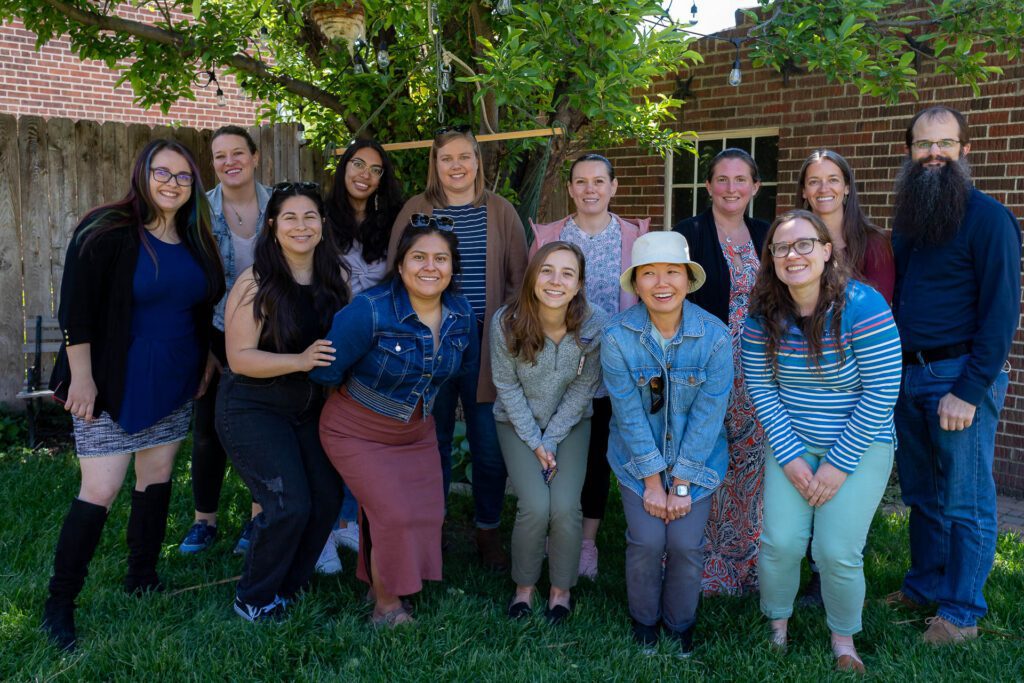“Laboratory” is in our name because collaboration is at the heart of what we do. While you won’t find a lab coat or test tube in our offices, you’ll find a space where minds come together to generate ideas and research.
Partnerships are critical in our pursuit to end human trafficking. Such a vast and complex issue can only be addressed by our collective force, approaching it from many different angles and perspectives. Each of our partners — including the 300+ who support survivors through Colorado’s Human Trafficking Hotline, task forces, and trained organizations — are helping end exploitation in their own unique way. It’s the mix of these disciplines and services that will make the movement a success.
Meet a few of our partners making a difference in Colorado’s anti-trafficking movement:


The Colorado Coalition for the Homeless is working towards the prevention of homelessness and the creation of lasting solutions for families, children, and individuals who are experiencing or at-risk of homelessness. CCH advocates for and provides housing and services to improve the health, well-being, and stability of more than 20,000 individuals and families each year.
“People experiencing homelessness and those who are dealing with untreated mental health and/or substance use disorders or who may be fleeing domestic violence situations are at increased risk of human trafficking,” explains Lisa Thompson, DNP, PMHNP-BC, Chief Operating Officer. “We address any urgent medical, mental health and/or substance use disorder needs and assist survivors in connecting with safe and stable emergency shelter and long-term housing options.”
We partner with CCH to offer staff training on the prevalence of human trafficking and how to recognize its signs in the population they serve. “We believe that all people have the right to live free from abuse and exploitation,” says Lisa. “Additionally, we believe that all people have the right to adequate housing and healthcare, and we work to remove the barriers that restrict access to these basic human rights.”


Denver Health is a Level 1 safety net trauma center that provides the best emergency, acute, and preventative care possible, regardless of a patient’s ability to pay. “Being involved in anti-trafficking is important to us because these are our patients, and this is our community,” says Michelle Metz, RN, Forensic Nurse Program Manager. “If a patient is being trafficked, we want them to know this is a safe place where they can get comprehensive, non-judgmental care.”
We partner with Denver Health to provide accessible human trafficking education to all staff members (not just bedside providers). Michelle explains, “Anyone may see something, and we want all our staff to be empowered to speak up. We also realize that not all patients are ready to come forward if they are being trafficked; regardless of their reasons, we strive to ensure they get the care they need and deserve while also allowing them autonomy over their choices.”
Denver Health is committed to creating a safe environment for victims of trafficking, and they accomplish that through community relationships. “Having LCHT’s Hotline available for consults, guidance, and live resources for patients has made a huge difference in the care we are able to provide.” Our impact is so much stronger when we work together!


The Rocky Mountain Immigrant Advocacy Network serves low-income men, women, and children in immigration proceedings. Caleb Stewart, Esq., Senior Staff Attorney explains, “RMIAN’s programs always begin and end with advocating for the rights of immigrants in Colorado. Combatting human trafficking has long been part of that advocacy.”
Not only does RMIAN represent survivors of human trafficking before immigration courts and with U.S. Citizienship and Immigration Services, but they coordinate social services support for survivors, engage the broader community through educational outreach and training, and collaborate with other stakeholders in Colorado to push for policies and systems that will benefit immigrant survivors of human trafficking.
Caleb continues, “the United States has always been made a better country through the diverse perspectives of immigrants that come here to seek a better life. I personally value and am enriched by being surrounded by languages and cultures and feel fortunate to be able to use my legal education as a tool to help people move beyond the barriers put up by selfish and unscrupulous perpetrators of human traffickers who have taken advantage of the vulnerabilities inherent in our present immigration system.”

Every partner organization, hotline resource agency, volunteer, engaged community member, and supporter plays an important role in the fight to end human trafficking. It will take all of us working together to solve this complex puzzle — and you are a valuable piece in it.
Take action! Get involved today in one of the following ways:
- Learn: Discover what human trafficking is, who experiences it, where it occurs — and what it will take to end it. Then, share this information with a friend.
- Donate: Make a gift to help end human trafficking today. Your support will help provide a 24/7 hotline to support survivors, fuel community-based research to advance local action, and more.
- Volunteer: Apply to become a volunteer advocate for Colorado’s 24/7 Human Trafficking Hotline. Connect victims and survivors with the resources they need.
- Get Trained: Book an anti-trafficking training session for your professional team. Learn how to recognize and respond to signs of human trafficking in your workplace.
